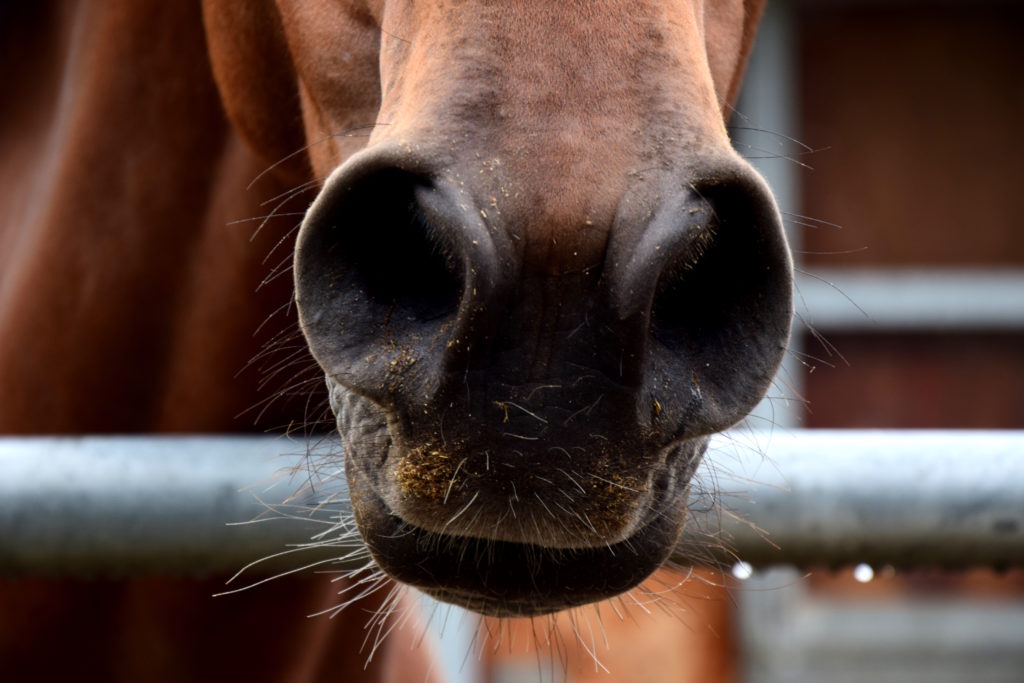Home > Horse Care > Three things to do for a horse having a heaves flare-up
Three things to do for a horse having a heaves flare-up
- September 30, 2024
- ⎯ Editors of EQUUS
• Keep the horse quiet and still. Any agitation or exertion during a heaves flare-up can tax his already limited intake of oxygen. Letting him stand with a quiet buddy may help keep him calm. Avoid feeding hay or concentrates, however—the dusts they contain may aggravate his condition.

• Protect him from the triggers. If the horse is in a stall or a dusty paddock, walk him out to an open grassy area or even a parking lot—away from the allergens that may be provoking the condition. Some horses develop a related condition, called summer pasture-associated heaves, caused by exposure to pollens and other allergens in open fields. If that’s the case, move the horse into a clean, well-ventilated stall. An air-conditioned space—if you have one available that can safely accommodate your horse—is an even better option. Cooler, less humid air is easier to breathe, and the filters in the unit remove dusts, pollens and other particles.
• Monitor his vital signs. Count the number of times per minute your horse breathes in and out—then check again every five minutes or so. If his breathing rate increases drastically, his heaves flare-up could be getting worse, and you’ll want to call your veterinarian with an update. Also keep tabs on the color of your horse’s gums, and alert your veterinarian if they’re extremely pale or bluish in color; this is a sign of oxygen deprivation. Temperature and heart rate can also be useful information for your veterinarian.
To learn more about heaves, click here.
Don’t miss out! With the free weekly EQUUS newsletter, you’ll get the latest horse health information delivered right to your in basket! If you’re not already receiving the EQUUS newsletter, click here to sign up. It’s *free*!





